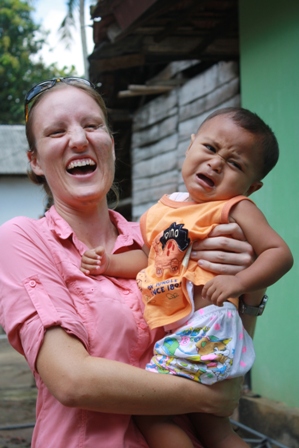International Work Experience
Like many other RAIDers, my entry into R4D work came via a stint volunteering overseas. During my PhD I decided that international agriculture was an area I was interested in pursuing, and I asked around about job vacancies and employment opportunities. Consistently, people replied that they wanted new people to get involved, but they needed staff with experience in developing countries. A couple of months later I found myself volunteering as an agronomist in the Philippines through the AVID program, and at the end of a year overseas, I was able to line up a job managing a research project in Indonesia.
Working in international development can be a challenging (but rewarding!) experience, and I can now understand why project leaders are reluctant to employ someone who hasn’t lived, studied, worked (or at the very least, travelled) in developing countries – and that week-long drinking binge in Bali isn’t what potential employers are looking for on your cv… Skills I learnt in the Philippines are directly relevant to my work in Indonesia, so don’t ignore an opportunity just because it isn’t in your targeted country. I developed resilience, humility, patience, respect, and became better at communicating. I learnt to smile when asked about my age, weight and why I’m not married, and how to survive getting your photos taken 56 times with each person in the village.
Volunteering gives you a chance to experience living and working overseas without committing to a long-term position. You’ll decide if living in-country is something you want to do more permanently – not everyone enjoys the lack of privacy, cold bucket showers, roosters/karaoke/call to prayer at 5am, or fending off centipedes every time you go to the bathroom! Maybe you’re more interested in basing yourself in Australia, and travelling in-country on a regular basis. You may decide that R4D isn’t for you after all. And that’s ok too.
The AVID program was my stepping stone, but there are lots of other opportunities out there. It might be a different volunteer program, teaching English, or a study/research program organised by your university or employer. RAID will post opportunities on our website and facebook page when we hear about them, but these are just a starting point.
So if you’re interested in international agriculture as a career path, get out there, talk to people already involved, and create yourself an opportunity.

Di Mayberry in Lampung Village


